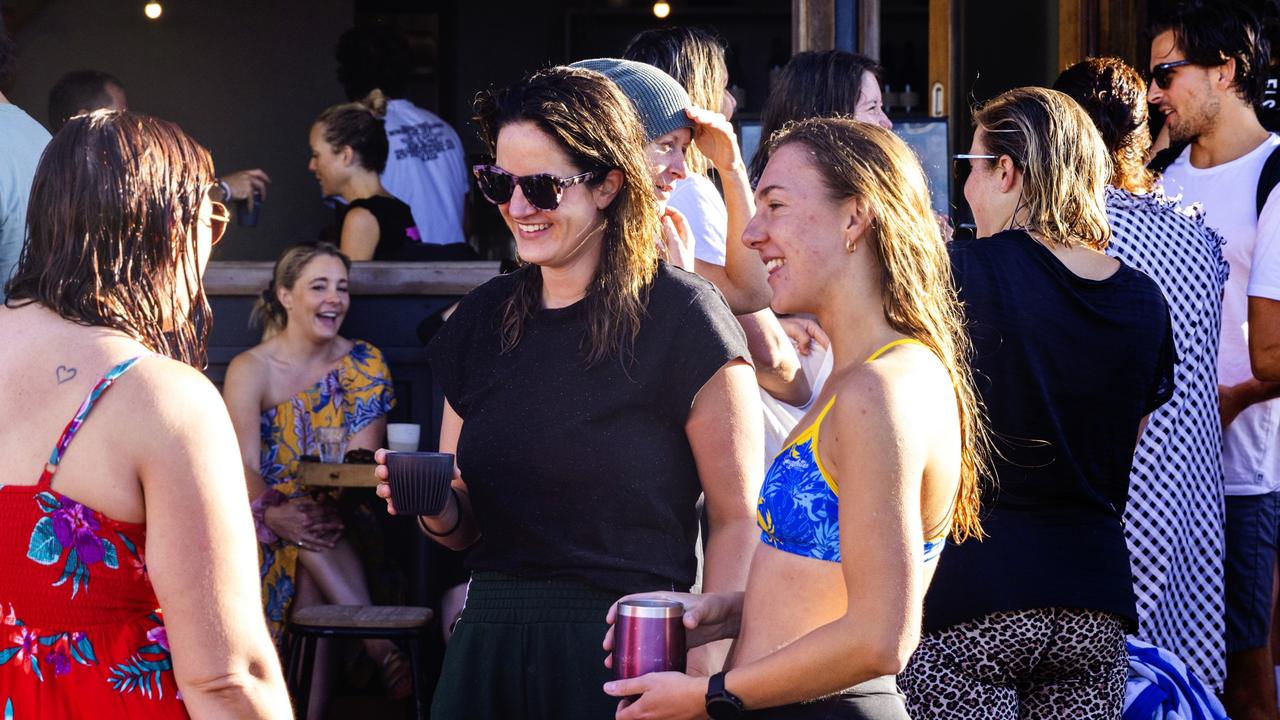NSW can sustain ‘thousands’ of Omicron cases before a significant rise in hospitalisations
NSW’s Covid cases are skyrocketing but one expert says the state will likely be able to sustain thousands of Omicron cases before it becomes a problem.
Covid cases in New South Wales continue to spike but experts say it’s possible there could be thousands of Omicron cases before the state experiences a significant jump in hospitalisations.
On Friday, NSW recorded 2213 new cases — the highest number of daily cases recorded since the start of the pandemic — with authorities warning the state could be recording around 25,000 cases a day by the end of January.
While the numbers look concerning, one expert points to the location of current superspreading events and says this might help keep hospitalisations down.
Deakin University epidemiologist Professor Catherine Bennett said many of the cases had been infected at events such as a Sydney Harbour party cruise, and at several pubs and clubs in Newcastle and Sydney, with many of likely to be the Omicron variant.
“These people will be unlikely to end up in hospital anyway because of their age group [they are likely to be younger] and due to the rules they should have been vaccinated,” she said.
Prof Bennett said Omicron data from South Africa showed people in their 20s could be 90 per cent less likely to be hospitalised if they are fully vaccinated.
“So if it’s only one in a thousand, you need thousands of cases [to see a surge in hospitalisations],” she said.
However, Omicron looks to be less severe than Delta and hospitalisations could also be impacted by Delta if case numbers increase significantly.
A Victorian doctor says Melbourne hospitals are already running out of beds, with infectious disease and emergency specialists now plunged into a “crisis situation”.
Between December 1 and December 16, daily confirmed cases in Victoria increased from 1179 to 1622, with hospitalisations also rising from 299 to 384.
So far hospitalisations in NSW have only ticked up slightly, with Friday’s figures showing 215 people were in hospital and 24 people in intensive care. It is far lower than the more than 1000 patients hospitalised in September when the state was last recording more than 1000 new cases day.
Prof Bennett said it usually took around a week or so for the full impact of higher cases to been seen in hospitalisations.
“We’ll have a good sense over the next couple of weeks about the impact on hospitalisations,” she said.
“But we should be able to tolerate higher case numbers without hospitalisations rising dramatically.”
Last year just 12.5 per cent of around 28,500 people who got Covid-19 in Australia were admitted to hospital for treatment.
On average, South African data on Omicron showed being double dosed could reduce your chance of being hospitalised by around 70 per cent across all age groups but Prof Bennett said this dropped away a little for people aged over 50, although this could be due to the fact they were vaccinated first and would be falling due for their booster shots.
Once people got their booster shot, protection returned to over 90 per cent.
“If you’re due for a booster, it’s the best thing you can do to protect yourself,” she said.
“It will also help reduce your change of getting any infection.”
She said around 90 per cent of people in ICU were unvaccinated.
This week NSW Premier Dominic Perrottet said cases would increase but urged the community to shift its focus to intensive care numbers instead.
“We need to learn to live alongside the virus and I want to instil confidence in our people that we can do that,” he said.

States like NSW are moving away from the focus on daily cases and Prof Bennett said secondary contacts of positive cases were no longer being identified for testing meaning “we won’t see all the cases that are out there”.
“But the important thing is that there is not enough transmission to push hospitalisations up and that’s why containing transmission is still important,” she said.
She said it was important for people to continue wearing masks, whether it was a requirement or not.
“Even in places where it is not a rule, if you can’t keep your distance and you are indoors, then masks are a good idea,” she said.
“We can feel good about vaccines’ protection against serious illness but don’t be silly, try to avoid infection. Our best bet is to contain transmission.”
Health Minister Brad Hazzard has also urged people against attending clubs in the lead up to Christmas Day.
“You don’t need right now to be jammed packed in an environment with no windows and nothing happening except music thumping. Maybe it’s not a good time [for that] if you want to have a Christmas Day,” he told reporters this week.






